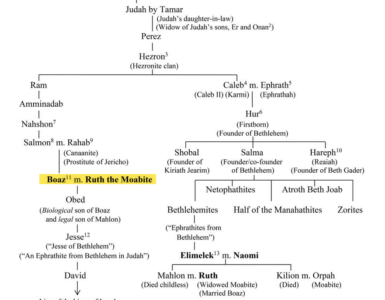
This is the seventy-fifth lesson in author and pastor Mel Lawrenz’ How to Live the Bible series. If you know someone or a group who would like to follow along on this journey through Scripture, they can get more info and sign up to receive these essays via email here.
See Mel Lawrenz’s book, How to Study the Bible: A Practical Guide.
Is it possible to know with certainty that the God and the mission Jesus spoke about is true, and you can have faith in it all? How does one know it isn’t just fantasy? The difference between faith based on fancy and faith based on fact is a matter of evidence. Anyone may choose to believe that a wild dream they had one night was really a ride in an alien spacecraft into which they were abducted, but where is the evidence for it?

As far as I can tell, I do not have arbitrary reasons for believing that Jesus is Lord eternally and that his mission really was authenticated by his teachings, miracles, and rising from the dead. I know I could view it as socially beneficial to just go along with this widely-held faith conviction. But I also know that there is a certain allure to being an agnostic. The agnostic says: I won’t say that there is a God, and I won’t say there isn’t. I just don’t know. Agnosticism offers the apparently safe route of not insulting a God-who-might-be, but, on the other hand, not having to commit to the limitations on freedom that a faith commitment involves. It is to say: if you’re out there God, I have no problem with that, but since you’ve not made yourself more obvious, I will live with you as a hypothetical (although that really means living as if God doesn’t exist). But you have to stop and ask yourself: if there really is a Creator God who wonderfully shaped this incredible universe and humanity at its apex, and who lovingly has helped humanity out of it’s self-imposed dilemmas–how would that God respond to the polite doubts of agnosticism?
It was in the spring of 1869 that English philosopher Thomas Huxley invented the term “agnostic” to make the point that there is an intermediate position between atheism and faith. He wanted to take the position that we cannot know the divine, but not to exclude the possibility of a divinity. Agnosticism has the practical effect of saying: if you’re out there God, I’ll assume you’ll keep to your corner of the universe, and that leaves me to my own world without having to bother with you.
On the other hand, some take the agnosticism position, not because they are intentionally stiff-arming God; they are just living in the grayness of uncertainty, and “I want to believe” is still there, but muted and easy to ignore.
What I cannot ignore is the evidence which comes from the life of Jesus, and has had a world-transforming effect in the centuries since. The core of the evidence for Christian faith comes from the life of Jesus himself, and his life is described in the documents known as the “Gospels.”
The person who provided the longest account of the life and times of Jesus was a man named Luke, a physician and traveling companion of Paul the apostle (a special representative of Jesus). Luke was a Gentile, not a Jew, and someone who would have had access to many eyewitnesses of the life and activities of Jesus. We get a keen insight into the motives and methods of the chroniclers of Jesus when we read the opening words of Luke’s Gospel:
Many have undertaken to draw up an account of the things that have been fulfilled among us, just as they were handed down to us by those who from the first were eyewitnesses and servants of the word. Therefore, since I myself have carefully investigated everything from the beginning, it seemed good also to me to write an orderly account for you, most excellent Theophilus, so that you may know the certainty of the things you have been taught.
Knowing with certainty is the issue. This is what Luke wanted for his friend Theophilus, and it is what we want. Who doesn’t want to live his or her life with a sense of certainty? We want to be as certain as we can be that the person we choose to marry is the right one. We want certainty about our financial security in our old age. We want to be certain that our friends will not betray us. But the reality is that all of these things may disappoint us, and people who thought we were sure and dependable may end up disappointed in us. And so we have the unfortunate aphorism: “Nothing is certain in life.” But uncertainty in life shouldn’t compel us to give up and turn cynical. If we give up on being certain about anything in life, we choose to live the life of a jellyfish being pushed back and forth by the waves.
Thank God for Luke, and the other writers of the Gospels, and other parts of Scripture, who give us the gift of certainty in the face of so many uncertainties in life.
___________
[If you believe this series will be helpful, this is the perfect time to forward this to a friend, a group, or a congregation, and tell them they too may sign up for the weekly emails here]
Mel Lawrenz (@MelLawrenz) trains an international network of Christian leaders, ministry pioneers, and thought-leaders. He served as senior pastor of Elmbrook Church in Brookfield, Wisconsin, for ten years and now serves as Elmbrook’s minister at large. He has a PhD in the history of Christian thought and is on the adjunct faculty of Trinity International University. Mel is the author of 18 books, including How to Understand the Bible—A Simple Guide and Spiritual Influence: the Hidden Power Behind Leadership (Zondervan, 2012). See more of Mel’s writing at WordWay.
The post How to Live the Bible — Certainty in an Uncertain World appeared first on Bible Gateway Blog.










